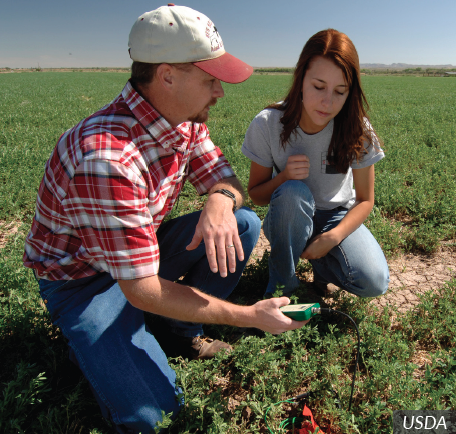- Candidates
- Login
- Set Up Account
- Create a Job Alert
- Search Tools
- Resources
- Employers
Overview
Extension faculty work at the university level, conducting research and providing programing on their specialty area, some may have a small undergraduate teaching assignment but it is not the primary function of their role.

What responsibilities will I have?
What education and training is required?
Extension educators have a Masters or PhD in a topic that they cover.
To pursue a career as an Extension Faculty member:
The following high school courses are recommended: agricultural education, mathematics, business courses, English, computer courses, biology, home economics and chemistry.
Where can I work?
Extension educators works at land-grant universities, in laboratories, and may travel their assigned state to various locations to conduct programs or research.
Future Job Market / Outlook
The future outlook for an extension educator will be good over the next five years.
Suggested Professional Organizations and Associations